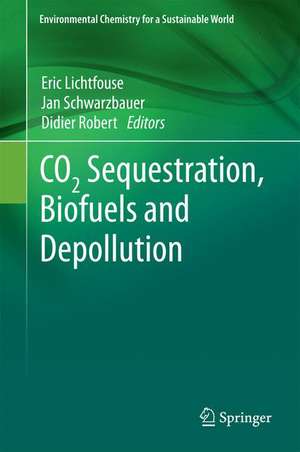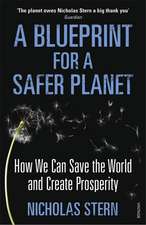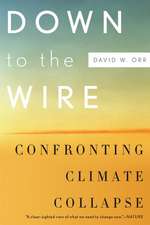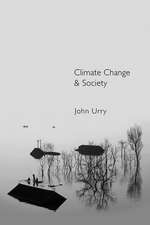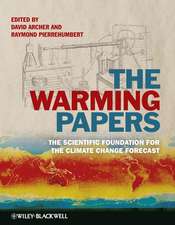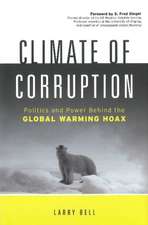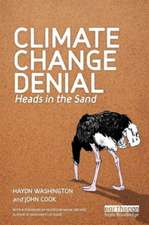CO2 Sequestration, Biofuels and Depollution: Environmental Chemistry for a Sustainable World, cartea 5
Editat de Eric Lichtfouse, Jan Schwarzbauer, Didier Roberten Limba Engleză Hardback – 17 mar 2015
| Toate formatele și edițiile | Preț | Express |
|---|---|---|
| Paperback (1) | 949.55 lei 6-8 săpt. | |
| Springer International Publishing – 5 oct 2016 | 949.55 lei 6-8 săpt. | |
| Hardback (1) | 955.70 lei 6-8 săpt. | |
| Springer International Publishing – 17 mar 2015 | 955.70 lei 6-8 săpt. |
Din seria Environmental Chemistry for a Sustainable World
- 18%
 Preț: 1118.45 lei
Preț: 1118.45 lei - 15%
 Preț: 645.79 lei
Preț: 645.79 lei - 15%
 Preț: 653.14 lei
Preț: 653.14 lei - 15%
 Preț: 648.24 lei
Preț: 648.24 lei - 15%
 Preț: 643.34 lei
Preț: 643.34 lei - 15%
 Preț: 651.51 lei
Preț: 651.51 lei - 15%
 Preț: 646.62 lei
Preț: 646.62 lei - 18%
 Preț: 956.81 lei
Preț: 956.81 lei - 18%
 Preț: 959.98 lei
Preț: 959.98 lei - 15%
 Preț: 646.62 lei
Preț: 646.62 lei - 18%
 Preț: 1389.30 lei
Preț: 1389.30 lei - 18%
 Preț: 1229.10 lei
Preț: 1229.10 lei - 18%
 Preț: 1001.81 lei
Preț: 1001.81 lei - 18%
 Preț: 1118.62 lei
Preț: 1118.62 lei - 18%
 Preț: 899.21 lei
Preț: 899.21 lei - 18%
 Preț: 1120.18 lei
Preț: 1120.18 lei - 18%
 Preț: 896.08 lei
Preț: 896.08 lei - 18%
 Preț: 788.72 lei
Preț: 788.72 lei - 18%
 Preț: 1009.70 lei
Preț: 1009.70 lei - 15%
 Preț: 650.86 lei
Preț: 650.86 lei - 15%
 Preț: 646.62 lei
Preț: 646.62 lei - 18%
 Preț: 1017.62 lei
Preț: 1017.62 lei - 18%
 Preț: 1118.62 lei
Preț: 1118.62 lei - 15%
 Preț: 644.95 lei
Preț: 644.95 lei - 5%
 Preț: 915.58 lei
Preț: 915.58 lei - 24%
 Preț: 751.40 lei
Preț: 751.40 lei - 18%
 Preț: 1008.12 lei
Preț: 1008.12 lei - 18%
 Preț: 1113.89 lei
Preț: 1113.89 lei - 18%
 Preț: 950.52 lei
Preț: 950.52 lei - 18%
 Preț: 959.98 lei
Preț: 959.98 lei - 15%
 Preț: 648.42 lei
Preț: 648.42 lei - 18%
 Preț: 950.96 lei
Preț: 950.96 lei - 23%
 Preț: 852.88 lei
Preț: 852.88 lei - 18%
 Preț: 959.50 lei
Preț: 959.50 lei - 20%
 Preț: 647.13 lei
Preț: 647.13 lei - 24%
 Preț: 744.58 lei
Preț: 744.58 lei - 18%
 Preț: 1215.22 lei
Preț: 1215.22 lei - 20%
 Preț: 570.17 lei
Preț: 570.17 lei - 24%
 Preț: 824.15 lei
Preț: 824.15 lei - 15%
 Preț: 647.59 lei
Preț: 647.59 lei
Preț: 955.70 lei
Preț vechi: 1165.49 lei
-18% Nou
Puncte Express: 1434
Preț estimativ în valută:
182.90€ • 190.24$ • 150.99£
182.90€ • 190.24$ • 150.99£
Carte tipărită la comandă
Livrare economică 14-28 aprilie
Preluare comenzi: 021 569.72.76
Specificații
ISBN-13: 9783319119052
ISBN-10: 3319119052
Pagini: 388
Ilustrații: XIII, 388 p. 48 illus., 29 illus. in color.
Dimensiuni: 155 x 235 x 28 mm
Greutate: 0.74 kg
Ediția:2015
Editura: Springer International Publishing
Colecția Springer
Seria Environmental Chemistry for a Sustainable World
Locul publicării:Cham, Switzerland
ISBN-10: 3319119052
Pagini: 388
Ilustrații: XIII, 388 p. 48 illus., 29 illus. in color.
Dimensiuni: 155 x 235 x 28 mm
Greutate: 0.74 kg
Ediția:2015
Editura: Springer International Publishing
Colecția Springer
Seria Environmental Chemistry for a Sustainable World
Locul publicării:Cham, Switzerland
Public țintă
ResearchCuprins
1. Chlorine for water disinfection: properties, applications and health effects.- 2. Greenhouse gas from organic waste composting: emissions and measurement.- 3. CO2 photocatalytic reduction: photocatalyst choice and product selectivity.- 4. Fluoride in drinking water: health effects and remediation.- 5. Selenium in agriculture. Water, air, soil, plants, food, animals and nanoselenium.- 6. Biofuels: bioethanol, biodiesel, biogas, biohydrogen from plants and microalgae.- 7. Digestion tests to measure heavy metal bioavailability in soils.- 8. Biosafety risk of genetically modified crops containing Cry genes.- 9. Foundry air pollution: hazards, measurements and control.- 10. Lignolytic enzymes for water depollution, coal breakdown, and paper industry.
Notă biografică
Dr. Eric Lichtfouse is Editor of scholarly journals and series in environmental chemistry and agriculture. He teaching scientific writing in Europe and the USA and is heading publication assistance services. He has done research in organic geochemistry, soil carbon dynamics and phytoremediation. He is the author of the book ‘Scientific Writing for Impact Factor Journals’.
Dr. Jan Schwarzbauer is Editor of the journal 'Environmental Earth Sciences ' and Subject Editor of 'Journal of Soils and Sediments'. After studying chemistry at the University of Hamburg, he is working since 1998 at the RWTH Aachen University leading as full professor the group 'Environmental Organic Geochemistry'.
Dr. Didier Robert is professor in organic chemistry and green chemistry at the University of Lorraine-Metz (France). He is associate editor of the Journal of Photocatalysis Sciences and its research activities are devoted to the decontamination of air and water by photochemical processes, especially by photocatalysis.
Dr. Jan Schwarzbauer is Editor of the journal 'Environmental Earth Sciences ' and Subject Editor of 'Journal of Soils and Sediments'. After studying chemistry at the University of Hamburg, he is working since 1998 at the RWTH Aachen University leading as full professor the group 'Environmental Organic Geochemistry'.
Dr. Didier Robert is professor in organic chemistry and green chemistry at the University of Lorraine-Metz (France). He is associate editor of the Journal of Photocatalysis Sciences and its research activities are devoted to the decontamination of air and water by photochemical processes, especially by photocatalysis.
Textul de pe ultima copertă
Water is the driving force of all nature. This old quote from Leonardo da Vinci remind us that without water life is simply not possible. As a consequence, water is probably the most important wealth for humanity. In spite of this, drinking water is still polluted by man-made toxicals gathered by waters in soils and the atmosphere. This book presents advanced methods to clean water and air. Chapters also focus on biofuels, greenhouse gases and genetically modified crops.
Caracteristici
Broadens the understanding of pollutants in drinking water, and their remediation Maximizes reader insights into greenhouse gas CO2 emission and sequestration Among other topics looks at biofuels from plant and algae, biosafety risk of genetically modified crops, chlorine for water disinfection, foundry air pollution and more Includes supplementary material: sn.pub/extras
